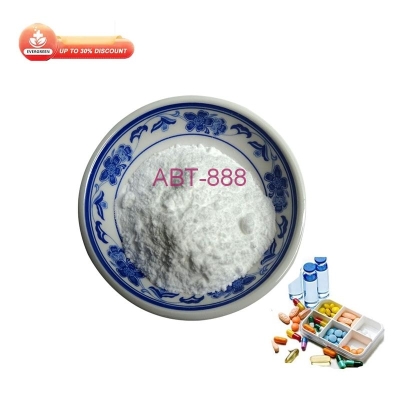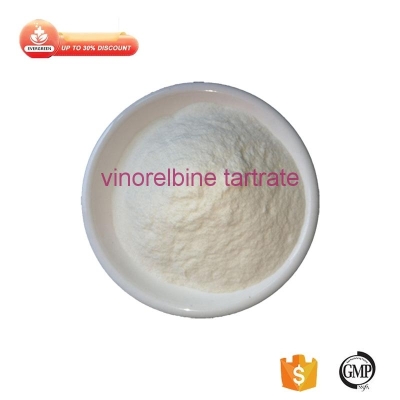-
Categories
-
Pharmaceutical Intermediates
-
Active Pharmaceutical Ingredients
-
Food Additives
- Industrial Coatings
- Agrochemicals
- Dyes and Pigments
- Surfactant
- Flavors and Fragrances
- Chemical Reagents
- Catalyst and Auxiliary
- Natural Products
- Inorganic Chemistry
-
Organic Chemistry
-
Biochemical Engineering
- Analytical Chemistry
- Cosmetic Ingredient
-
Pharmaceutical Intermediates
Promotion
ECHEMI Mall
Wholesale
Weekly Price
Exhibition
News
-
Trade Service
iNature metastases are responsible for the majority of cancer-related deaths worldwide
.
More and more studies have shown that circRNAs are involved in the occurrence and metastasis of many cancers
.
However, the biological mechanisms of circRNAs in breast cancer (BC) liver metastasis are still very obscure
.
On January 24, 2022, Sun Yat-Sen University, Tang Hailin, Wang Jin and Xiao Xiangsheng published a joint communication in Molecular Cancer (IF=27) online entitled "The circROBO1/KLF5/FUS feedback loop regulates the liver metastasis of breast cancer by inhibiting the selective autophagy of afadin”, which identified circROBO1 by RNA sequencing from three pairs of primary BC and metastatic liver sites
.
Up-regulation of circROBO1 expression was found in BC-derived liver metastases and was associated with poor prognosis
.
Knockdown of circROBO1 significantly inhibited the proliferation, migration and invasion of BC cells, while overexpression of circROBO1 showed the opposite effect
.
Furthermore, overexpression of circROBO1 promoted tumor growth and liver metastasis in vivo
.
Further studies showed that circROBO1 can upregulate KLF5 by sponging miR-217-5p, enabling KLF5 to activate the transcription of FUS, thereby promoting the back-splicing of circROBO1
.
Therefore, a positive feedback loop consisting of circROBO1/KLF5/FUS was formed
.
More importantly, this study found that circROBO1 inhibited the selective autophagy of afadin by upregulating KLF5
.
Taken together, our results suggest that circROBO1 promotes BC carcinogenesis and liver metastasis through the circROBO1/KLF5/FUS feedback loop, and inhibits afadin-selective autophagy by inhibiting the transcription of BECN1
.
Therefore, circROBO1 can be used not only as a potential prognostic marker but also as a therapeutic target for BC
.
As the most common type of cancer in women, breast cancer (BC) is the leading cause of cancer-related death in women worldwide
.
According to a recent report, the 5-year survival rate for primary BC is almost 99%
.
However, approximately one third of BC patients develop distant non-nodal metastases, which reduces their 5-year survival rate to 23%
.
BC metastases to the lung, bone, liver and brain mainly through the circulation, and the liver is the third most common organ site for BC metastasis
.
Liver metastases occur in 50% of patients with BC metastases, and 5-12% of patients with BC develop liver metastases as the main site of recurrence
.
If liver metastases are left untreated, patients live about 4 to 8 months
.
However, current treatments for BC-derived liver metastases are mainly based on systemic hormones and/or chemotherapy, which can only prolong patient survival to approximately 18-24 months
.
However, little is known about the specific mechanisms by which cancer cell invasive capacity is enhanced in BC progression, which may be a promising target for precision antimetastatic therapy
.
Most of the transcriptome contains noncoding RNA, while 2% of the genome can only be transcribed into messenger RNA
.
Among non-coding RNAs, circular RNAs (circRNAs) have unique circular structures and were once considered to be "by-products" of transcription
.
However, circRNAs have been shown to be widespread in cells and exhibit rich biological regulatory functions
.
Compared to linear mRNAs, circRNAs do not have traditional RNA structures such as 3' polyadenylation tails or 5' caps, which makes them more stable and evolutionarily conserved
.
As a hot research field, circRNAs have attracted the attention of researchers because of their ability to adsorb miRNAs, bind and interact with proteins, and translate a new protein into similar mRNAs.
.
According to recent studies, aberrant expression of circRNAs has been found in various human cancers
.
All these findings suggest that circRNAs play an important role in cancer progression and have great potential to be prognostic biomarkers and novel therapeutic targets in therapy
.
However, the biological functions of circRNAs in initiating BC liver metastasis have not been elucidated
.
In this study, a novel circRNA hsa_circ_0124696 (circROBO1) was identified by RNA sequencing to be upregulated in BC-derived liver metastases and associated with poorer survival
.
CircROBO1 promotes BC proliferation and metastasis in vivo and in vitro by increasing KLF5 expression, while FUS promotes the back-splicing of circROBO1 and is transcriptionally activated by KLF5, forming a positive feedback loop
.
Furthermore, circROBO1 could inhibit the selective autophagy of afadin, a key biomarker of BC metastasis to the liver, by upregulating KLF5
.
Therefore, this study reveals for the first time that afadin-selective autophagy inhibition driven by a positive feedback loop consisting of circROBO1/KLF5/FUS promotes the progression of BC-derived liver metastases and provides new prognostic biomarkers and anti-inflammatory drugs for BC patients.
Metastatic therapeutic targets
.
Reference message: https://molecular-cancer.
biomedcentral.
com/articles/10.
1186/s12943-022-01498-9
.
More and more studies have shown that circRNAs are involved in the occurrence and metastasis of many cancers
.
However, the biological mechanisms of circRNAs in breast cancer (BC) liver metastasis are still very obscure
.
On January 24, 2022, Sun Yat-Sen University, Tang Hailin, Wang Jin and Xiao Xiangsheng published a joint communication in Molecular Cancer (IF=27) online entitled "The circROBO1/KLF5/FUS feedback loop regulates the liver metastasis of breast cancer by inhibiting the selective autophagy of afadin”, which identified circROBO1 by RNA sequencing from three pairs of primary BC and metastatic liver sites
.
Up-regulation of circROBO1 expression was found in BC-derived liver metastases and was associated with poor prognosis
.
Knockdown of circROBO1 significantly inhibited the proliferation, migration and invasion of BC cells, while overexpression of circROBO1 showed the opposite effect
.
Furthermore, overexpression of circROBO1 promoted tumor growth and liver metastasis in vivo
.
Further studies showed that circROBO1 can upregulate KLF5 by sponging miR-217-5p, enabling KLF5 to activate the transcription of FUS, thereby promoting the back-splicing of circROBO1
.
Therefore, a positive feedback loop consisting of circROBO1/KLF5/FUS was formed
.
More importantly, this study found that circROBO1 inhibited the selective autophagy of afadin by upregulating KLF5
.
Taken together, our results suggest that circROBO1 promotes BC carcinogenesis and liver metastasis through the circROBO1/KLF5/FUS feedback loop, and inhibits afadin-selective autophagy by inhibiting the transcription of BECN1
.
Therefore, circROBO1 can be used not only as a potential prognostic marker but also as a therapeutic target for BC
.
As the most common type of cancer in women, breast cancer (BC) is the leading cause of cancer-related death in women worldwide
.
According to a recent report, the 5-year survival rate for primary BC is almost 99%
.
However, approximately one third of BC patients develop distant non-nodal metastases, which reduces their 5-year survival rate to 23%
.
BC metastases to the lung, bone, liver and brain mainly through the circulation, and the liver is the third most common organ site for BC metastasis
.
Liver metastases occur in 50% of patients with BC metastases, and 5-12% of patients with BC develop liver metastases as the main site of recurrence
.
If liver metastases are left untreated, patients live about 4 to 8 months
.
However, current treatments for BC-derived liver metastases are mainly based on systemic hormones and/or chemotherapy, which can only prolong patient survival to approximately 18-24 months
.
However, little is known about the specific mechanisms by which cancer cell invasive capacity is enhanced in BC progression, which may be a promising target for precision antimetastatic therapy
.
Most of the transcriptome contains noncoding RNA, while 2% of the genome can only be transcribed into messenger RNA
.
Among non-coding RNAs, circular RNAs (circRNAs) have unique circular structures and were once considered to be "by-products" of transcription
.
However, circRNAs have been shown to be widespread in cells and exhibit rich biological regulatory functions
.
Compared to linear mRNAs, circRNAs do not have traditional RNA structures such as 3' polyadenylation tails or 5' caps, which makes them more stable and evolutionarily conserved
.
As a hot research field, circRNAs have attracted the attention of researchers because of their ability to adsorb miRNAs, bind and interact with proteins, and translate a new protein into similar mRNAs.
.
According to recent studies, aberrant expression of circRNAs has been found in various human cancers
.
All these findings suggest that circRNAs play an important role in cancer progression and have great potential to be prognostic biomarkers and novel therapeutic targets in therapy
.
However, the biological functions of circRNAs in initiating BC liver metastasis have not been elucidated
.
In this study, a novel circRNA hsa_circ_0124696 (circROBO1) was identified by RNA sequencing to be upregulated in BC-derived liver metastases and associated with poorer survival
.
CircROBO1 promotes BC proliferation and metastasis in vivo and in vitro by increasing KLF5 expression, while FUS promotes the back-splicing of circROBO1 and is transcriptionally activated by KLF5, forming a positive feedback loop
.
Furthermore, circROBO1 could inhibit the selective autophagy of afadin, a key biomarker of BC metastasis to the liver, by upregulating KLF5
.
Therefore, this study reveals for the first time that afadin-selective autophagy inhibition driven by a positive feedback loop consisting of circROBO1/KLF5/FUS promotes the progression of BC-derived liver metastases and provides new prognostic biomarkers and anti-inflammatory drugs for BC patients.
Metastatic therapeutic targets
.
Reference message: https://molecular-cancer.
biomedcentral.
com/articles/10.
1186/s12943-022-01498-9







